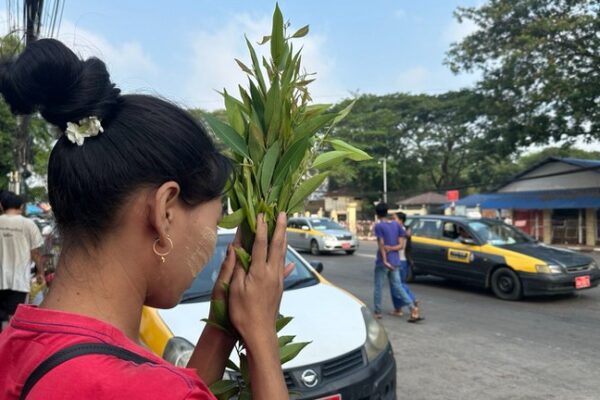Ethnic army intercepts junta offensive on Thai-Myanmar border
An ethnic armed group intercepted a junta retaliation near the Thai-Myanmar border on Thursday, according to an announcement from rebel forces. The Karen National Liberation Army, an armed branch of the Karen National Union, along with other allied groups, captured the last remaining junta Infantry Battalion 275 near a border town in Myanmar’s Kayin state on Wednesday. In response, the junta launched state-level offensive “Operation Aung Zeya” to capture Myawaddy city, according to a Karen National Union statement released Thursday. Karen National Liberation Army joint forces destroyed military vehicles, including an armored vehicle, while junta troops were marching enroute to Myawaddy, it continued. According to the Karen National Union, more than 100 junta troops were injured and killed, and the group was stopped at Dawna Hills, a mountain range extending through Kayin state. Radio Free Asia reached out to a Karen National Union spokesperson by phone today to learn more about the retaliation, but he did not respond. On high alert A Myawaddy resident who wished to remain anonymous for security reasons told RFA that the Karen army had warned some villages about junta airstrikes, which began on Tuesday evening. “The villages near Infantry Battalion 275 have been ordered to be evacuated by the Karen National Union due to air raids,” he said. “On April 18, people are telling each other to evacuate starting from today.” Civilians are waiting to go to Thailand through the Thai-Myanmar Friendship Bridge, while other Myawaddy residents are monitoring the situation, he said, adding that everyone is worried. Another resident in the border city said the non-alighned Karen National Army, formerly the junta-aligned Border Guard Force, are patrolling the streets and warning the residents to be prepared to evacuate quickly if heavy fighting breaks out. Junta forces fired with heavy weapons and bombarded villages along their marching route during their offensive, causing civilian casualties and property damage, the Karen National Union’s statement said. The junta has not released any information on the attack. RFA called junta spokesman Maj. Gen. Zaw Min Tun for more information, but he did not pick up the phone. Since April 5, the Karen National Liberation Army and joint forces have captured the junta camps 355, 356 and 357 in Kayin state’s Thin Gan Nyi Naung town, in addition to Falu camp and Kyaik Don Byu Har hill camp and others around Myawaddy city. Translated by RFA Burmese. Edited by Kiana Duncan and Mike Firn.








